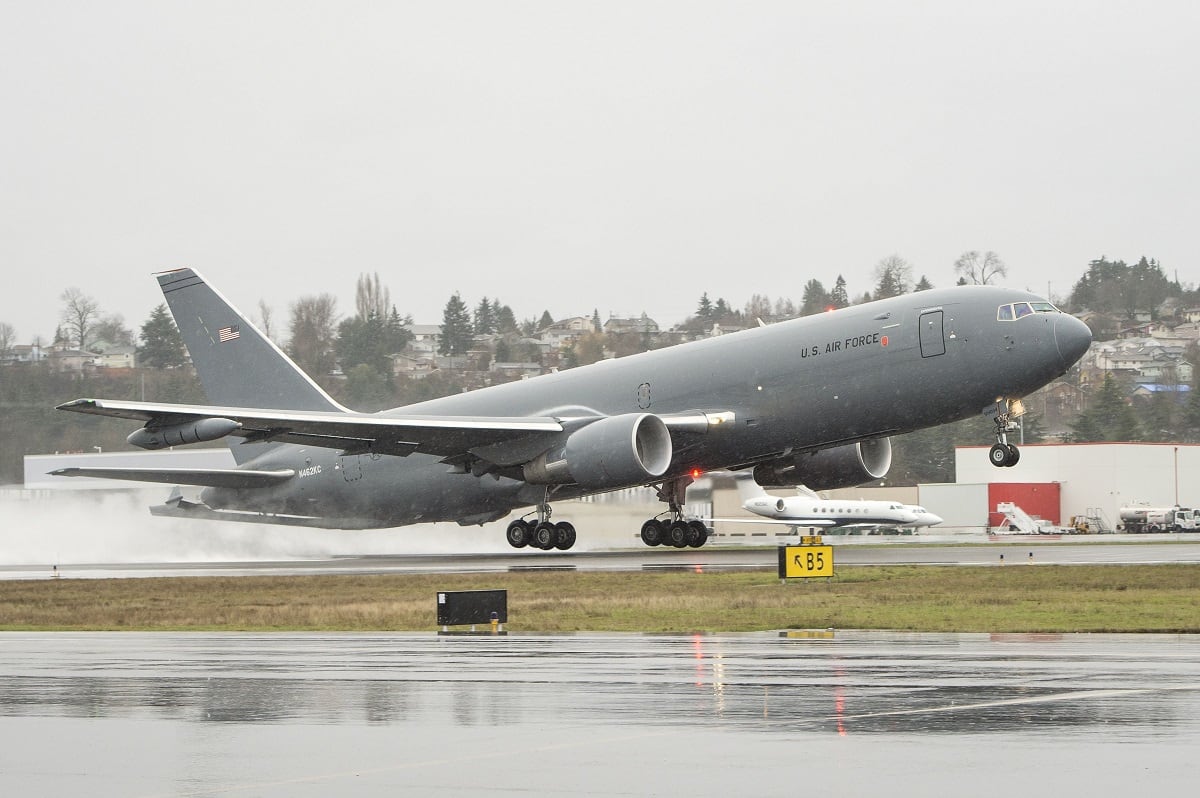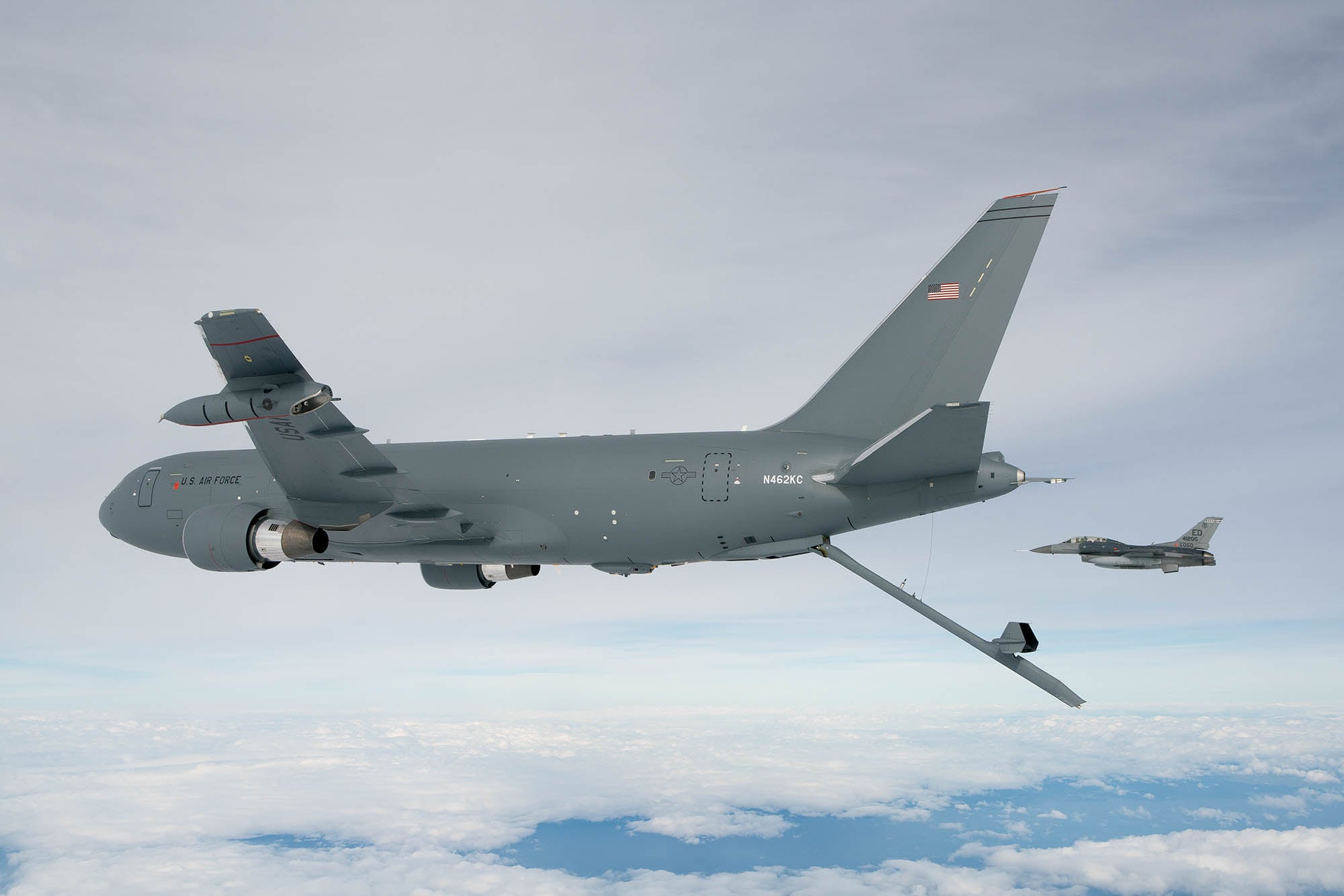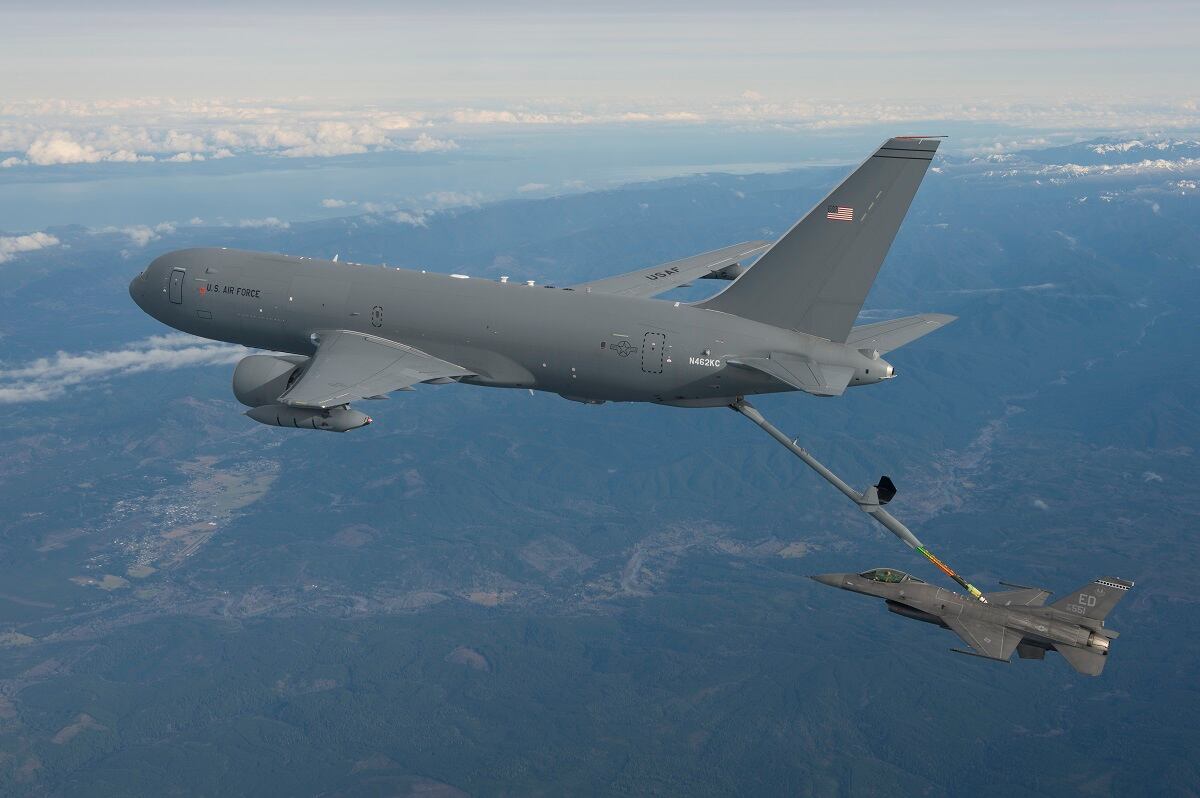The Air Force is working with the Pentagon’s operational test and evaluation office to reconcile concerns raised in a January report about the KC-46 Pegasus, but the service isn’t planning to change the tanker program or test timelines.
The Director of Operational Test and Evaluation said the KC-46 refueling tanker may not have met the office’s standards for electromagnetic pulse testing because not all of the systems were online during the tests.
The goal was to assess whether the aircraft could safely operate when confronted by electromagnetic fields generated by equipment like radar.
The test showed that the tanker’s flight-critical and boom-refueling systems could withstand a 6-decibel electromagnetic pulse, but certain systems were uninstalled or deactivated before testing, according to the report.
RELATED

“The configuration of the KC-46A used for EMP testing was intended to test the mission-critical functions of the aircraft to ensure it can continue to operate in an EMP environment,” Air Force Materiel Command officials told Air Force Times.
The mission-critical functions include safe taxi, takeoff, flight, landing, control of the aircraft, life support, refueling operations (using the boom and centerline drogue system only), and voice communications.
“The systems that were uninstalled or deactivated were not flight critical or required for aerial refueling operations,” the command said.

After the KC-46 was exposed to electromagnetic pulses, the results showed that these critical systems retained their functionality, according to AFMC.
“During a post-test functional flight, the boom operated successfully throughout its operating range (full telescope and movement) while the pumps filled the boom with fuel,” the command said. “The [refueling system] was also successfully trailed to full trail, filled with fuel, and fully rewound. The wing-mounted refueling pods were installed on the aircraft during the EMP test but were not tested during the post-test functional flight.”
The electromagnetic testing took place in July at Naval Air Station Patuxent River, Maryland, and Edwards Air Force Base, California.
AFMC said that as of now, there are no additional EMP tests scheduled for the KC-46.
One of the next steps is to assess how the tanker performs during nuclear threat-related tests. This includes an inherent hardness assessment and base escape study.
The inherent hardness assessment considers the KC-46’s inherent hardness to nuclear weapon effects, AFMC said. A test of the aircraft’s thermal curtains, which protect aircrew from some of these effects, will be assessed.
The base escape study is an analysis of the time required for a KC-46 to launch and fly a safe distance from a simulated nuclear attack.
The IHA and BES tests are scheduled for the second half of fiscal 2018.
Gen. Carlton Everhart, head of Air Mobility Command, told Air Force Times in January that the KC-46 is almost done with tests needed for the tanker’s second — and final — Federal Aviation Administration certification.
RELATED

In December, the FAA certified the 767-2C, which is the modified 767 commercial plane that forms the basis of the KC-46.
This Amended Type Certificate verifies that the fundamental design of the tanker is safe, and it’s one of two FAA certifications required for the tanker program. The Supplemental Type Certificate focuses on the military-specific equipment that’s installed on the 767-2C aircraft to make it a tanker.
In addition to the two FAA certifications, the KC-46 requires an Air Force-issued Military Type Certification that validates the airworthiness and safety of the military systems and equipment installed on the new tanker, AMC officials said.
The Air Force plans to buy 179 of the aircraft, and Boeing is contractually obligated to deliver the first 18 certified tankers by October.
McConnell Air Force Base in Kansas and Altus Air Force Base in Oklahoma will be the first to receive the KC-46, which will replace the KC-135 Stratotankers.
Charlsy is a Reporter and Engagement Manager for Military Times. Email her at cpanzino@militarytimes.com.









